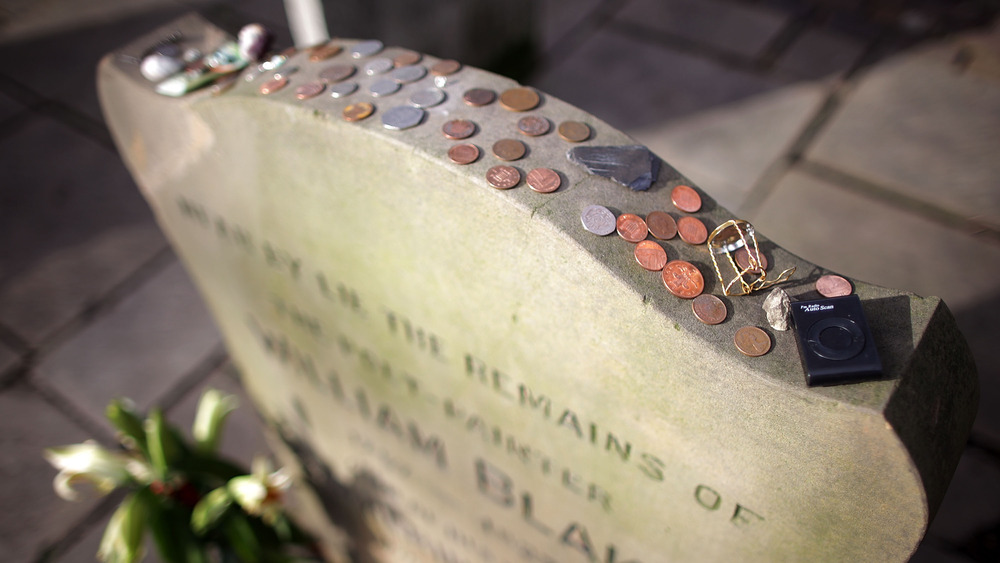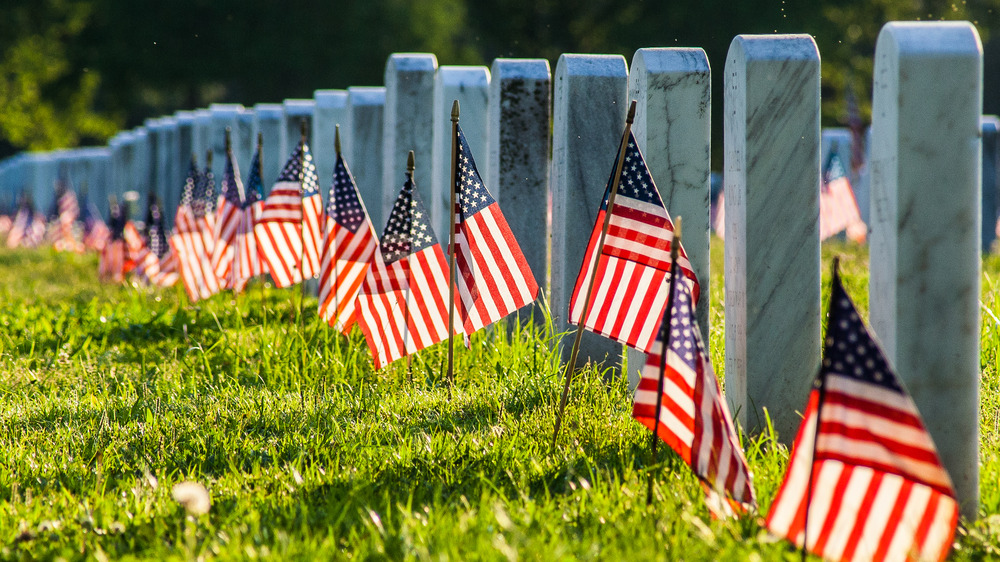What Leaving Coins On Gravestones Really Means
If you're ever thinking of booking passage along the river Styx with the ferryman of the dead, Charon, then you're in luck. For the cost of a mere one-sixth of a drachma (a silver coin dating to sixth-century BCE Greece, per Mintage World), you too can be on your way to Elysium (the nice place) or Tartarus (the not-nice place), so long as Hermes is there to escort you. Just have your friends or family place the coin — dubbed "Charon's obol" — in your mouth when you die. One-way only, no refunds. And you can also have coins (pennies, most likely) placed on your eyes to prevent them from popping open due to muscular contractions (per The Body). Or a mortician can just glue them shut (per Mental Floss).
And how about coins on graves? What's their purpose? People have been decorating graves, in fact, for at least 70,000 years, since Neanderthals first placed flowers in honor of their dead, as the CBC tells us. The tradition carries on to this day as a way to commemorate and honor the deceased, draw attention to the cycle of life and renewal after death, and so on. Buddhists place flowers at grave sites, (per eCondolence), countries like Japan place incense and water, (per Voyapon), Jewish customs involve placing stones on graves (per My Jewish Learning), and candles are common in many European countries (per Radio Free Europe).
How about coins, then? What's the significance behind them?
Coins are placed to honor military service
Of course, anyone can put anything they want on a loved one's grave — a favorite stuffed animal, a cherished picture, several wine corks, a half-finished novel — whatever object conveys the desired symbolic meaning. As for coins, your first instinct might be: coins signify luck, prosperity, well-being, making wishes, that sort of thing. This is often culturally true, but coins on graves have a very different meaning, and it relates to military service.
In a Memorial Day video on ABC affiliate ABC 13, Col. Dave Taylor explains what coins on graves signify. Col. Taylor, a Vietnam veteran, says that the tradition started during the Vietnam War as a "way to show respect without getting into an uncomfortable political discussion about a war that was very controversial." The Vietnam War, of course, was an extremely contentious engagement for the U.S. and caused a lot of division within the public, as well as the military itself. It makes sense that service members developed some sort of special language that overlooked disagreements, particularly in light of the fate potentially faced by any soldier: death.
Different denominations of coins have different meanings. A penny means that a visitor, military member or not, is showing respect. A nickel means that the visitor and the deceased went through training together, while a dime indicates some "close association." A quarter means that the visitor was there when the deceased was killed in action.

